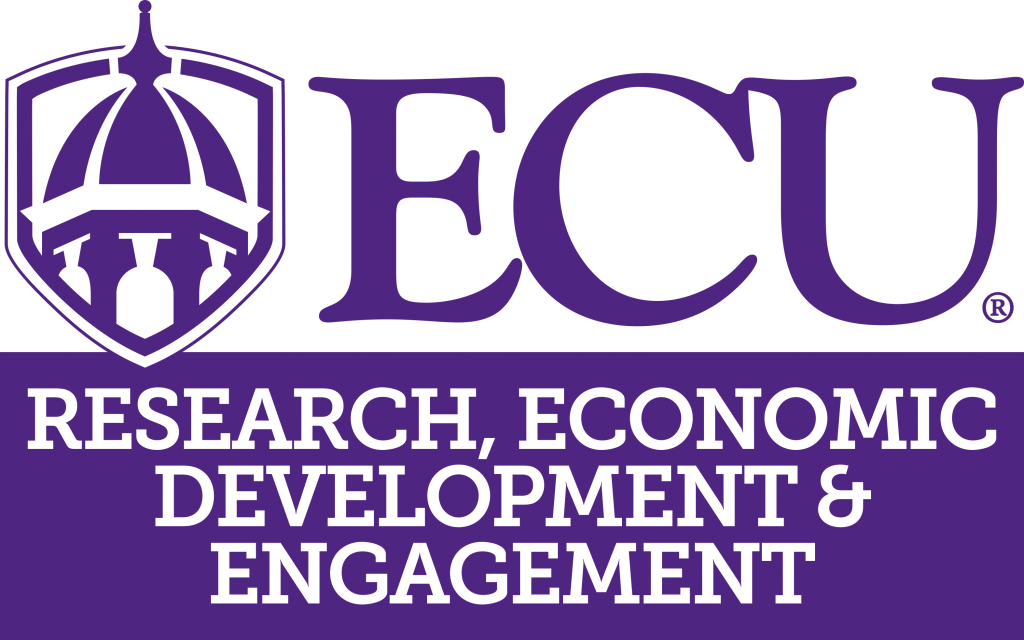2018 Startup Recipients
Below are ECU’s 2018 new faculty startup award recipients. Learn more about the startup program.

Molly Jacobs
jacobsm17@ecu.edu
Health Services Information Management, CAHS
Molly’s research focuses on improving adolescent health in rural areas. Rural youth face risks related to both the demographic characteristics and physical environment — they are more likely to live in poverty, be less educated, be uninsured, use tobacco, and face a greater risk of injury or death. Given that research shows that the health trends and behaviors established during adolescence continue to adulthood, these differences are troubling. Molly’s project proposes to: identify the status and trends in health among rural adolescents and children; evaluate the related attributes, changes over time and determinants in their community; and test the feasibility and potential effectiveness of utilizing SBHC as an effective intervention mechanism using community-level counter-factual analysis.

Dylan Hardison
hardisond18@ecu.edu
Technology Systems, CET
Dylan’s research is in the field of construction safety. He is exploring how the integration of design technologies such as computer-aided design and building information modeling software affect individuals’ abilities to foresee construction safety risks in the design phase of a project. He plans to use eye-tracking and Functional Near-Infrared Spectroscopy technologies to examine participants cognitive and decision-making processes during hazard recognition tasks. Ultimately, the goal of his research is to better understand how people interpret danger from engineering and design technologies and to increase the quality of safety training and construction safety planning.
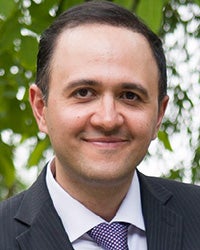
Ali Vahdati
vahdatia18@ecu.edu
Engineering, CET
Ali’s research lies at the nexus of engineering, biology and medicine. He examines the response of different tissues and organs of the body to external mechanical loading at different time and length scales. His work utilizes computer modeling (virtual experiments) and experimental techniques to study the interaction of implants and tissue engineered constructs with native tissue and to predict the outcome of various surgeries that interrupt the natural mechanical environment of the cells and tissues in the human body. Ultimately, his research aims at finding solutions and developing technologies for prevention and early diagnosis of soft and calcified tissue pathologies and improving and predicting the outcome of various surgeries.

Sinan Sousan
sousans18@ecu.edu
Public Health, BSOM and Agromedicine Institute
Sinan is researching occupational exposure to particulate matter, toxic gases, noise, and extreme temperatures that are associated with adverse health effects. Short- and long-term exposure risk is affected by various factors that require different prevention methods to decrease exposure. Workers are at a higher exposure risk, compared to environmental exposure, especially in indoor operations. His research focuses on low-cost direct reading sensors that provide high-temporal and spatial resolution. Low-cost sensors have become increasingly popular, where institutions and companies are providing sensors that are rigid, portable and lightweight, including small form factor devices that can provide area or personal exposure. Tracking worker exposure will help Sinan identify exposure risk at any time and location, allowing him to implement engineering solutions that can be put in place to decrease these exposures.

Michelle Oyen
oyenm18@ecu.edu
Engineering, CET
Michelle’s research is in the area of biomaterials and biomechanics, and can be described as using engineering tools and techniques to solve real-world problems in medicine and nature more generally. She has three main research areas: first, trying to rebuild broken body parts using “tissue engineering” to make tissues that can’t heal themselves, such as new cartilage for people with arthritis. Second, making biomimetic (nature-imitating) materials to help reduce our human contributions to the global carbon footprint. This could involve replacing steel and concrete with lab-created bone or eggshell. Finally, and slightly more unconventionally, using experimental and computational engineering tools to understand problem pregnancies. Her goal is to make a “virtual placenta” to help develop interventions for premature birth.

Sam Mosier
mosiers18@ecu.edu
Political Science, THCAS
Sam’s research focuses on sustainability politics and policy. Under this umbrella she conducts research on local sustainability initiatives in the United States and production and marketing practices in the food and agriculture market. In both lines of research, she aims to uncover how our current systems are governed and identify mechanisms for managing resources and achieving both short-term and long-term solutions for better governance. This includes a specific focus on organic and sustainable agricultural production and marketing, perceptions of technology in agricultural production, the role of anchor institutions in promoting local sustainability efforts, and local environmental performance assessment. Her work engages both qualitative and quantitative methods including case studies, in-depth interviews, surveys (observational and experiment), and large-N data analysis.

Aimee Smith
smithaim18@ecu.edu
Psychology, THCAS
Aimee works to transform health care’s approach to pediatric chronic illness, medication adherence, and health care transition using principles of health behavior change, with a focus on adolescents and young adults who are at greatest risk for poor adherence (the primary cause of treatment failure in chronic illnesses) due to developmental and neurobiological processes. She specializes in health care transition — the move from pediatric to adult providers — which further impairs adherence. Her interests include barriers to and facilitators of transition and adherence and she examines longitudinal trajectories of adherence to understand how barriers change over time, particularly during transition. Her ultimate goal is to improve health care practices and quality of life for youth with chronic illness during their most vulnerable and underserved stage.

Shannon Wallet
wallets18@ecu.edu
Dental Medicine, SODM
Shannon’s research interests are focused on the contribution of epithelial cell biology to innate/adaptive immune homeostasis and dysfunction in three major disease conditions: pancreatic cancer, type 1 diabetes (autoimmunity), and periodontal disease (autoinflammation). Previous investigations have been hindered by a lack of robust primary cell cultures, which her laboratory has been able to overcome in animal and human tissues, providing new platforms that allow her to measure and screen at the molecular and cellular level as well as predict organismal behavior from individual components. Many of the mechanisms and systems in play in each of these diseases are surprisingly (or maybe not so surprisingly) similar. This coupled, with the lab’s ability to evaluate its findings in the human conditions, allow for rapid translation of its findings.

Eric Soule
soulee18@ecu.edu
Health Education and Promotion, HHP
Eric’s research examines substance use behaviors with an emphasis on alternative tobacco product use such as electronic cigarette use and hookah (waterpipe) tobacco smoking, as well as alcohol use. The core of his research is understanding the behaviors that are associated with using different types of products and if certain product characteristics or individuals’ perceptions may influence substance use behaviors. As a main goal of his research, he hopes to prevent morbidity and mortality associated with substance use. This often guides his research to focus on identifying approaches to promote substance use prevention and developing regulatory policy. Using innovative methods, including qualitative and quantitative methods, is a key approach he feels is needed for providing the data needed to create such policies.

Jeffrey Skibins
skibinsj18@ecu.edu
Recreation and Leisure Studies, HHP
Jeffrey’s research focuses on three overarching issues of human dimensions of wildlife conservation: how can parks, protected areas, zoos, and aquariums increase public participation in wildlife conservation?; how do we improve wildlife conservation outcomes from ecotourism?; how does interpretation influence wildlife conservation? He uses conservation and environmental psychology theories to investigate how visitors’ emotions, attitudes, and on-site experiences can be measured to predict proconservation behaviors. His research methods use multivariate statistics to develop population-level models. Projects are designed to provide managers strategies to enhance wildlife conservation, interpretation and exhibit design, public campaigns, and visitor experiences.
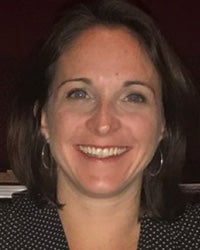
Jessie Ellis
ellisje18@ecu.edu
Physiology, BSOM and ECDOI
Jessie’s lab uses biochemical, metabolic flux, molecular biology, and genetically manipulated mouse model approaches to understand the regulation and importance of cellular fatty acid metabolism. Her lab focuses on: the enzymatic regulation of cellular lipid metabolism within the brain and how this metabolism influences neurological function and susceptibility to neurodegenerative diseases, with a special emphasis on the neuroprotective omega-3 fatty acid, docosahexaenoic acid (DHA).; mitochondrial metabolism in the muscle in relation to cardiac hypertrophy, muscle function, energetic homeostasis, obesity, and diabetes. Specifically, the lab has determined that muscle fatty acid oxidation is critical for maintaining cardiac and skeletal muscle structure, function, and physiological response to stress, such as diet induced obesity and insulin resistance, and it continues to investigate the mechanisms therein.

Jun-Yong Choe
choej18@ecu.edu
Chemistry, THCAS and ECDOI
Jun-Yong’s lab is working on the structure and function of carbohydrate-related proteins and their application to medical and biotechnological fields through drug discovery and protein engineering. The lab’s biological systems include glucose transporters (important membrane proteins involved in cancer, diabetes and other metabolic diseases), carbohydrate transporters involved in aging, and enzymes and transporters responsible for glucose conjugation and transport of salicylic acid (with role in plant defense against pathogens). It uses molecular biology, cell culturing in different systems (bacteria, yeast, insect and human cells), biochemical and biophysical techniques for protein purification and characterization, x-ray protein crystallography (using synchrotron sources operated by U.S. DOE national laboratories), small angle x-ray scattering, and computational modeling and simulation.

Patrick Horn
hornp18@ecu.edu
Biology, THCAS
Patrick’s research aims to understand the roles of lipids, or plant-based oils, in plant growth and development, in response to dynamic environmental conditions, and exploit this knowledge to engineer healthier plants for environmental and human health. His lab aims to understand how cells and organelles are built using these lipid “building blocks”, how these lipids are synthesized and metabolized, and how the amounts and types of lipids respond to environmental cues in model and NC-valuable crop species (e.g. soybean). As plant-based oils are essential for human health (e.g. omega-3 fatty acids) and serve as precursors for valuable bioproducts (e.g. biodiesel, cosmetics, lubricants, etc.), the lab aims to help engineer plants that produce these desired oils.

Heather Vance-Chalcraft
vancechalcrafth@ecu.edu
Biology, THCAS
Heather’s research includes the fields of biology education and community ecology. Her biology education research revolves around the themes of improving student success during the transition from community college to university, evaluating the impact of graduate teaching assistant training programs on self-confidence and teaching practices, and incorporating research experiences into undergraduate courses using citizen-science projects. Her ecological research centers on predator-prey interactions and how species interactions are impacted by changes in the environment. She uses experimental and synthetic approaches to address these questions, generally in freshwater systems.
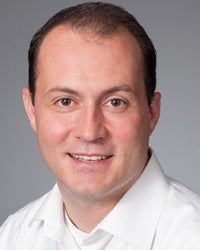
Brandon Garcia
garciabr18@ecu.edu
Microbiology and Immunology, BSOM
Projects in Brandon’s lab are centered on: broadening knowledge of immune evasion mechanisms used by disease-causing bacteria; and translating basic research of host pathogen interactions into the development of novel therapeutics for controlling human autoimmune, inflammatory, infectious, and neurodegenerative diseases and conditions. His current research is focused on how the causative agent of Lyme disease, Borrelia burgdorferi, evades an ancient arm of innate immunity known as the complement system. Despite its critical function as a sentinel to invading pathogens, the inappropriate activation of complement is a hallmark of many debilitating human diseases. His lab is leveraging its work in the area of bacterial complement evasion proteins and our experience in identifying small molecule complement inhibitors to develop novel complement-targeted drug leads.

Ausmita Ghosh
ghosha18@ecu.edu
Economics, THCAS
Ausmita is an applied micro-economist and her research interests lie at the intersection of health economics and public policy. A common theme in much of her work is how institutions and policy interventions influence health outcomes, service utilization and disparities. Her research aims to identify the barriers that households and governments face in improving health and well-being — including environmental and socio-economic factors — with the goal of formulating better policy. In one strand of research, she studies the effect of various government programs and economic conditions on the behaviors and outcomes of economically disadvantaged populations. In another strand, she examines the human health impacts of environmental exposure and the effectiveness of regulations that mitigate such exposure.

Kathleen Egan
eganka18@ecu.edu
Health Education and Promotion, HHP
Kathleen’s research consists of epidemiologic, observational, and intervention studies on multiple substances of abuse — nonmedical prescription drug, illicit drug, tobacco, and alcohol — among adolescents and young adults. She is particularly interested in the implementation and evaluation of community-based interventions and policies to prevent substance use problems in communities, especially among adolescents and young adults. While she is broadly interested in substance use, her independent research has focused on nonmedical prescription drug use as it is a serious public health issue in the United States. Over the past several years, she has focused on examining the disposal of unused prescription medications as a prevention strategy. Ultimately, the goal of her research plan is to influence the implementation and sustainability of effective strategies to address substance abuse in communities.

Mi Hwa Lee
leemih17@ecu.edu
Social Work, HHP
Mi Hwa’s research focuses on understanding the scope and nature of breast cancer screening disparities in ethnic minority women, as well as develop interventions to increase their screening. She seeks to understand the impact of social, cultural and physical environment factors on breast cancer screening behavior in ethnic minority women, which will lead to the development of a culturally appropriate community-based intervention to promote breast cancer screenings. Her work represents an intersection of social work/nursing/public health approaches, community-based participatory research, quantitative/qualitative methodologies, and prevention science. The ultimate goal of her research is to inform the development and implementation of relevant public policies and practices for cancer screening behavior changes in ethnic minority women.

Erzsebet Szatmari
szatmarie18@ecu.edu
Physical Therapy, CAHS
Erzesbet’s research examines the involvement of proteins called small GTPases in development of Alzheimer’s disease. She is particularly interested in Rab10 and Arf6, which are key regulators of neuronal trafficking. Reduced Rab10 level has been associated with longevity and “AD resilience”. Arf6 is negatively regulated by Rab10; it is required for sorting of amyloid precursor protein (APP) cleaving enzymes and therefore is a modulator of A_42 production. She uses cellular (cultured neurons and brain slices) and murine (3xTg-AD mice) models of AD in combination with molecular, cellular, imaging and behavioral techniques to understand the precise role of these two signaling molecules in AD development. The ultimate goal of her research is to identify new therapeutic targets to treat or prevent neurodegeneration.

Rui Wu
wur18@ecu.edu
Computer Science, CET
Rui’s research interests focus on data mining and data visualization. He’s worked with hydrological scientists for the last four years. One of his projects focuses on improving a physically-based parameter-distributed hydrological model. The original model requires abundant time to calibrate (e.g. 3 years). His proposed method is able to generate equivalent quality results and requires a much shorter time (e.g. 1 day). The key idea is to use data mining techniques to find out possible connections between model outputs and inputs. He would like to work with anyone who is interested in environmental parameter prediction or classification models, such as, fire models and streamflow prediction models.

Hannah Cooper
cooperh18@ecu.edu
Geography, Planning and Environment, THCAS
Hannah’s multidisciplinary research interests lie in the integration of Earth science, human environmental interactions, GIS, remote sensing, machine learning, statistical modeling, and field measurements to better understand dynamic geographic phenomena such as coastal systems at risk to natural hazards. Her major research contributions have been in the development and advancement of uncertainty models in sea-level rise vulnerability mapping and derived risk assessments and assisting in the development of new data integration schemes for automated habitat and vegetation mapping using multiple remote sensing data. Her research is all in support of increasing the integrity in science-based decisions and management.

Jinkun Lee
leejin18@ecu.edu
Engineering, CET
Jinkun’s research focuses on mathematical optimization techniques such as optimal control and dynamic optimization in order to control a complex system in an optimal way. A core part of this research is to identify the system’s dynamic behavior only from repetitive input/output data set and to skip a modeling work before optimization, also known as data-driven optimization. His research domains include manufacturing process optimization, vehicle routing problem, and health care operations management. The ultimate goal of his research is to develop a systematic approach that enables an autonomous process optimization through sensors and data-driven algorithms.

Kristin Z. Black
blackkr18@ecu.edu
Health Education and Promotion, HHP
In her research, Kristin utilizes community-based participatory research and mixed methods approaches to understand and address inequities in chronic disease and reproductive health outcomes. She has three intersecting lines of research. First, she explores the sexual and reproductive health concerns of women with chronic diseases, how treatments for chronic diseases impact women’s sexual and reproductive health outcomes, and if these concerns or outcomes differ by race or other identifying factors. Second, she is focused on understanding what individual- and systems-level factors may hinder or facilitate chronic disease patients’ receipt of sexual and reproductive health care services. Third, she is committed to transforming research into action by engaging community stakeholders in implementing and sustaining interventions that address health disparities among women of color.
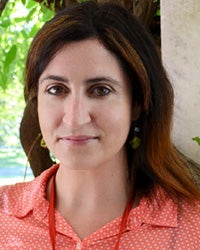
Cat Normoyle
normoylec18@ecu.edu
Graphic Design, SOAD and CFAC
Cat’s research and creative activity examines how design can make a difference in communities, acting as an agent for change in emerging theories, practices, and technologies. She explores the implications of design and how they can be instrumental in solving complex problems and creating better experiences for people in diverse contexts. Additionally, she considers how design can challenge the visual and cultural landscape, disrupt the status quo and foster new ways of thinking and making. Her work intersects a range of design interests including community engagement, design activism, social impact, digital experiences, creative technologies, and speculative design. Her research is interdisciplinary, experimental, collaborative, and strategic at its core, and works in a range of media including analog, digital, 2D, 3D, 4D formats.

Leslie Cofie
cofiel18@ecu.edu
Health Education and Promotion, HHP
Leslie’s research focuses on cancer health disparities among racial/ethnic minority immigrants living in the U.S. His primary objective is to understand differences in sociocultural and contextual factors associated with cancer preventive behaviors, between U.S.-born and foreign-born individuals. Specifically, he examines differences related to breast, cervical, and colorectal cancers between the two groups. His work includes the use of a mixed methods approach and network analysis to examine how social network characteristics uniquely impacts cancer risk and prevention among foreign-born populations. The long-term goal of his work is to develop interventions that would contribute to eliminating the burden of cancers that disproportionately affect foreign-born populations.

Jie Yang
yangji18@ecu.edu
Social Work, HHP
Jie’s research focuses broadly on healthy aging. In particular, she is interested in productive engagement and social isolation among older adults. Both areas have recently been identified as one of the 12 grand challenges in social work. She has researched the aging workforce, the unemployed, and senior LGBT adults. She is interested in identifying social and environmental risk and protective factors that can help to provide evidence and insights for future intervention development. Jie also specializes in longitudinal analyses and looks forward to the collaboration with scholars of similar interests.

Christine Habeeb
habeebc18@ecu.edu
Kinesiology, HHP
Christine’s area of research includes team dynamics and interpersonal relations, with a specialization in confidence in sports teams. The main objective of her research is to understand how persons function optimally in groups, while evaluating how roles on a team moderate the influence others have on personal functioning. This area of research is applicable to other domains including medicine, military, and organizations in which human performance depends on the success of individuals working together. Through the use of two-person analyses and research methods, she is focused on quantifying the extent to which others influence our personal functioning, identifying mechanisms that buffer negative consequences of poorly-capable teammates, and providing leaders an individualized approach to facilitate optimal individual performance within team performance contexts.
